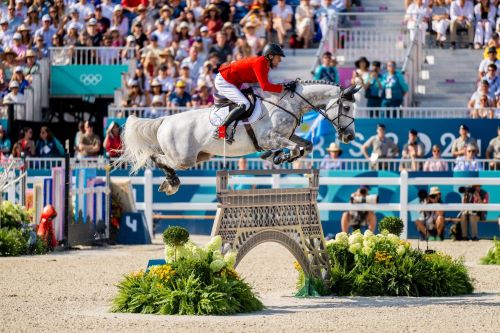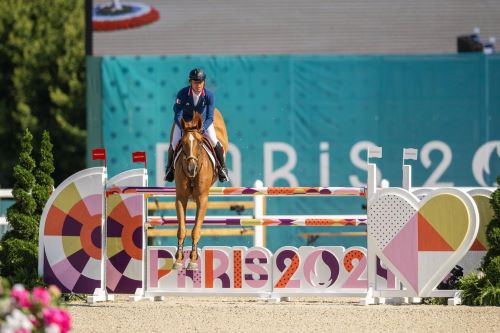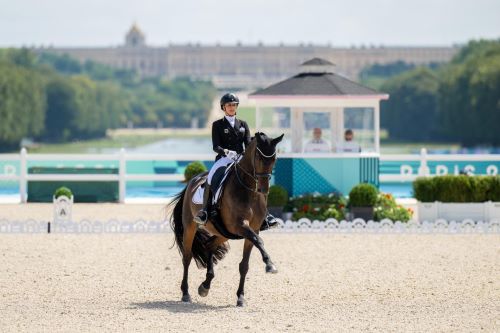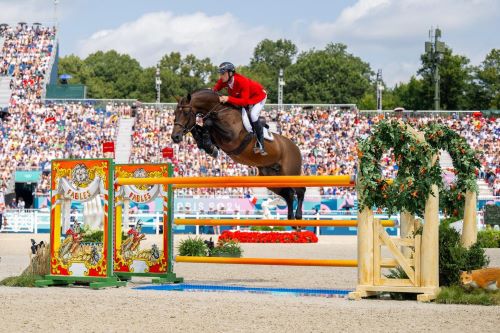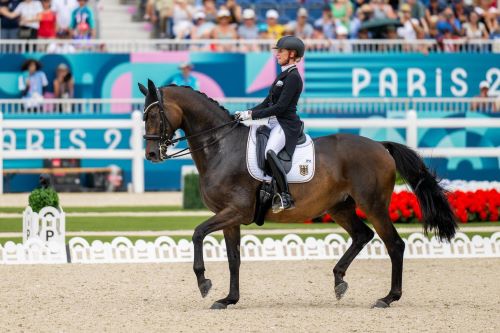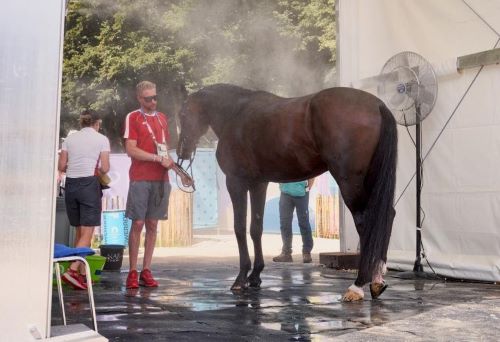FEI Driving World Championship 2022 – EXELL Boyd (AUS) during Marathon phase B on 24 September 2022. Copyright FEI / Christophe Tanière
World class Driving returns to its historic heartland for the 26th FEI Driving World Championship for Four-in-Hand when the Hungarian Equestrian Federation will welcome 43 athletes from 14 nations to the State Stud Farm at Szilvásvárad, a breeding centre for the country’s ‘national treasure’ Lipizzaner horses.
It’s 40 years since the 7th World Championship was held here at a time when Hungarian drivers dominated the horse fours – the home team won gold and all three individual medals. The nation last hosted the World Championship 20 years ago in Kecskemét, when they also won team and individual golds. Two of those athletes from 2004 will return, winner Zoltán Lázár and teammate József Dobrovitz, whose son József Jnr. is also now a regular member of the Hungarian squad.
President of the HEF is Zoltán’s brother, Vilmos, himself a former World Champion, who states, “This will be a jubilee event, like the 1984 World Championship in Szilvásvárad, which was the pinnacle of the sport. The main goal for this event is to have the same significant impact it did 40 years ago, and to give this wonderful sport new momentum.”
Record Breaking Defending Champion
For the individual gold, the expectation is that Boyd Exell (AUS) will extend his record breaking run as he aims for a 7th consecutive world title. It was a close contest between him and Ijsbrand Chardon (NED) in Pratoni (ITA) two years ago, but Boyd judged his cones round perfectly to stay in front, despite the torrential rain. It will be his 10th World Championship and this season he has continued his hard-to-beat form.
“We at Team Exell are excited and looking forward to the World Championship in Hungary. I’ve driven there many times and really enjoy the energy created by the knowledgeable people who have a passion for driving, which they take very seriously.
“We are going in quietly confident with an experienced team of horses, and I will have my trusted international crew with me as support. However, you can never underestimate the Chardons, and Chester is producing some fantastic dressage this year, so I will be watching out for them!”
Dutch Favourites to Retain Team Title
Of the 11 national teams, The Netherlands is favourite to win an unprecedented 12th world title, one they first took in Apeldoorn (NED) in 1982. Ijsbrand was on the team back then, and has been on every winning team since, taking four individual titles too. Also on the Dutch squad are his son Bram – current FEI World Cup™ and European Champion – plus long-term teammate, Koos de Ronde.
They will be pushed hard by the other nations, including the consistently successful Germans, who took silver in 2022. Their team selectors have six combinations with great experience to draw on, such as 2022 bronze medallist Michael Brauchle, former gold medallist Christoph Sandmann, his daughter Anna, and dressage queen Mareike Harm.
After taking gold at the 2018 FEI World Equestrian Games™ in Tryon (USA), the Americans have a team again with James Fairclough and Chester Weber, who have been winning world medals together since the Jerez (ESP) FEI World Equestrian Games™ in 2002. Belgium took bronze in Pratoni, so will be aiming for the podium again, boosted by a return to form for Glenn Geerts. Throughout the squads the family theme is a strong one, not least for the Hungarians who also have father and son Ferenc Galbács Snr and Jnr, and for the Czech Republic, with brothers Radeck and Jiri Nesvacil Jnr.
As hosts, Hungary is permitted to enter nine combinations, and it would be a dream come true to reward the passionate home crowd with more medals, as they have done in the past. Not only is this a landmark event for the horse-loving nation, but it will be a showcase for the variety of breeds that are used.
Vilmos Lázár – “In the last 40 years, Driving has evolved into a truly professional sport and in addition, the safety and wellbeing of the horses has come to the forefront. The domestic audience has been spoiled in recent decades because we have regularly rewarded them with podium finishes, especially in horse pairs, and most often with gold medals.
Nowadays, the quality of the horses is incredible. We can admire the wonderful Nonius team from the Mezőhegyes Stud Farm, or the two Lipizzaner teams from Szilvásvárad driven by István Váczi and Ferenc Galbács Jnr. We also have the youngest member in the field, Péter Juhász, who thanks to the Federation’s sports development programme and the support of the military, has been able to assemble his team of horses.”
It’s anticipated that gold medals will go the same way as they did two years ago in Italy. But where some nations have entered a larger squad, which athletes will take those valued three team places may not be revealed until everyone is at the venue. For those who visit Szilvásvárad, it will be an opportunity to bask in the rich Hungarian heritage with horses, in a stunning setting nestled at the foot of the Bükk Mountains.
Provisional programme
Wednesday 4 September
10:00 – Horse Inspection
17:00 – Opening Ceremony
Thursday 5 September
10:00 – Dressage Day 1
Friday 6 September
10.00 –Dressage Day 2
Saturday 7 September
10.00 – Marathon
Sunday 8 September
10.00 – Cones
15.30 – Award Ceremony
Full Entries can be seen here.
by Sarah Dance


